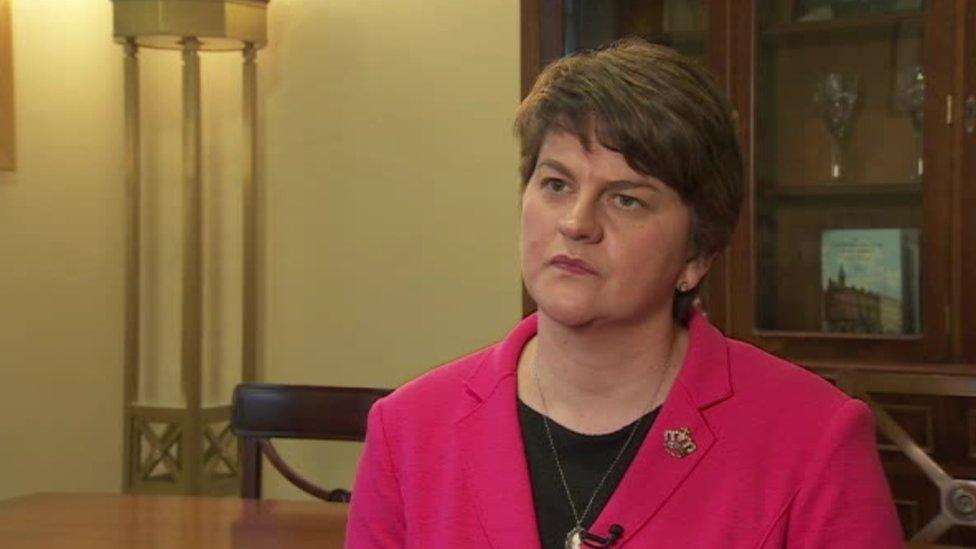Arlene Foster: DUP leader becomes new NI first minister
- Published
Arlene Foster was nominated by her predecessor to take the first minister role
Democratic Unionist Party (DUP) leader Arlene Foster has become Northern Ireland's first minister.
She took over from Peter Robinson, who confirmed his resignation in the Northern Ireland Assembly on Monday.
Mrs Foster is the first woman and the youngest person to hold the most senior post in Northern Ireland politics.
The Fermanagh and South Tyrone MLA has already served as acting first minister, standing in for Mr Robinson on two occasions.
In her maiden speech in the role, she said: "I will do all I can to change the political culture of this place but I can't change that alone.
"We can only do it by working together."
Prime Minister David Cameron tweeted his congratulations to Mrs Foster, external, adding: "I look forward to working with her on a positive future for [Northern Ireland]."

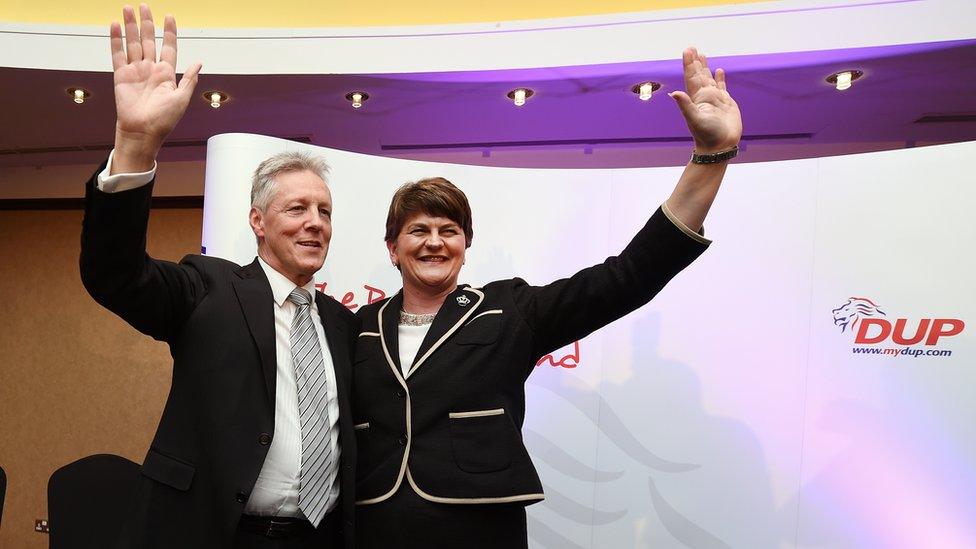
Arlene Foster succeeded Peter Robinson as DUP leader in mid-December
Profile: Arlene Foster
Born Arlene Kelly in Roslea, County Fermanagh, in 1970, Mrs Foster's first experience of Troubles violence came when she was just eight years old.
Her father was a part-time policeman and was shot by the IRA on the family farm.
When she was a teenager in 1988, a bomb exploded under her school bus.
She has made a rapid rise through the ranks of the DUP since joining the party from the Ulster Unionists in 2004.

Peter Robinson told the Assembly he was certain Arlene Foster was "a worthy successor"
The first item on MLAs' agenda when they returned to the assembly chamber at Stormont on Monday was a personal statement in which Mr Robinson confirmed his resignation after nearly six years as first minister.
In his speech, Mr Robinson said in politics there was "never a full stop".
"I am absolutely certain that, in Arlene, I have a worthy successor," he said.
"I can assure her that I will not interfere in her work, but that if she ever needs a word of encouragement or advice I will always be there to offer it.
"Consistent with the terms of my letter of last Monday, I hereby resign the office of first minister with confidence that the political institutions we have together created will be here for generations to come."

Arlene Foster: Her political life
Analysis BBC News NI's political editor Mark Devenport
Arlene Foster will certainly want to be seen out and about because time is fairly tight for her.
She has only got until the end of March in normal governmental roles.
Mrs Foster has said on a number of occasions she intends to concentrate on the economy.
With the assembly election looming, she does face quite a challenge.
There was some evidence of an Ulster Unionist comeback in recent elections.
She must try to hold the DUP's position as Northern Ireland's largest party.

Mrs Foster paid tribute to Mr Robinson and his "lifetime in politics".
She said he had been a "political mentor" and said he was leaving "enormous political shoes to fill".
Deputy First Minister Martin McGuinness said he believed he would have a "good" and "friendly" working relationship with his new partner in government.
He told BBC Radio Ulster's Evening Extra programme: "I've been very encouraged by what Arlene has been saying publicly - about not letting the past effectively become a weight around our shoulders.
"Yes, we shouldn't forget it and we do need to support victims, but we need to get on with the business of government and normalising politics here in the north of Ireland."
In the assembly earlier, Mr McGuinness also paid tribute to the leadership Mr Robinson had shown during his time in office.
He said they had faced many challenges but they had come through in the end.
He added that he had a friendship with Mr Robinson and hoped it would continue.
TUV leader Jim Allister wished Mr Robinson many years of a happy and healthy retirement.
Watchword
Mr Robinson then formally nominated Mrs Foster as his replacement.
Mrs Foster said it was with "great humility, an enormous sense of responsibility and the imagination of endless potential for Northern Ireland" that she affirmed the pledge of office and took up the post.
"I can think of no greater honour than to have the opportunity to serve my country and the people of Northern Ireland as their first minister," she said.
"I am truly humbled by the trust and confidence which has been placed in me."
BBC News NI looks back at some of the memorable moments that have defined the DUP's Arlene Foster
The first minister said she was tired of Stormont being a "watchword for arguing and bickering".
"That's not why our people elected us," she said.
"They did so to provide a better future for us all."
"I will do all I can to change the political culture of this place but I can't change that alone.
"We can only do it by working together."
Stamp
Under the assembly rules, Mr Robinson's resignation automatically triggered the removal of the deputy first minister, Martin McGuinness from his post.
He was then re-nominated by Sinn Féin's Caitriona Ruane.
The DUP also has to replace Mrs Foster as finance minister, but that is not expected to happen until Tuesday.
The new first minister has already confirmed she will not attend the Irish government's commemoration of the 1916 Easter Rising and rejected any major change in the law on abortion.
She has a short period to put her stamp on her new role as the Northern Ireland Assembly is due to break soon for an election campaign starting at the end of March.
- Published11 January 2016
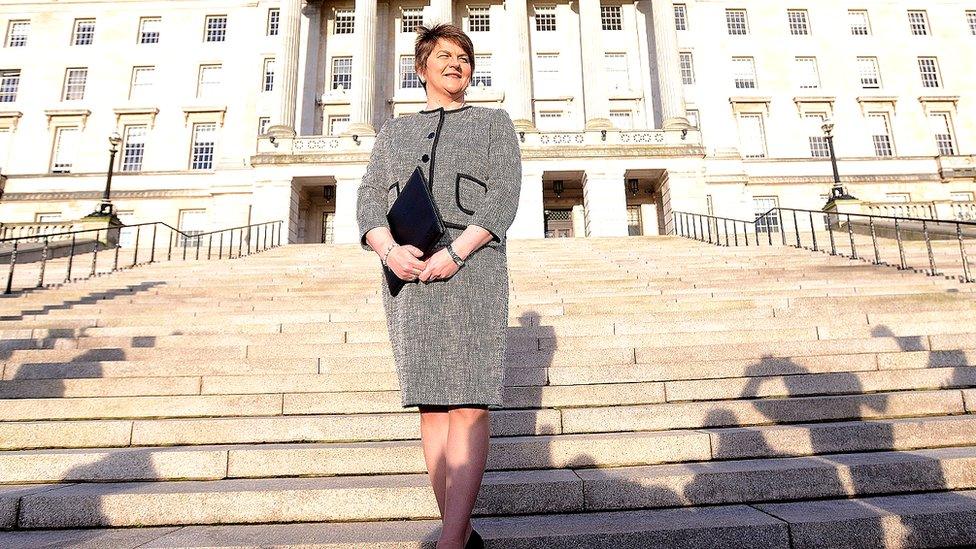
- Published11 January 2016
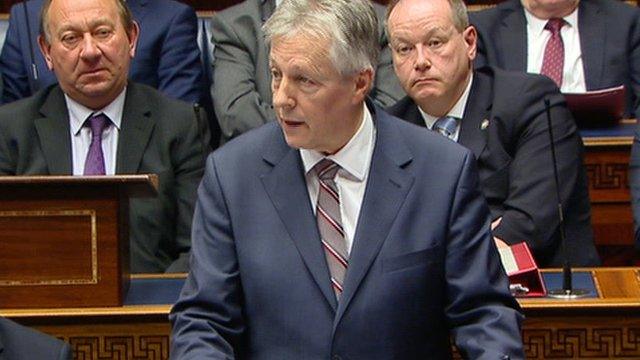
- Published13 June 2017
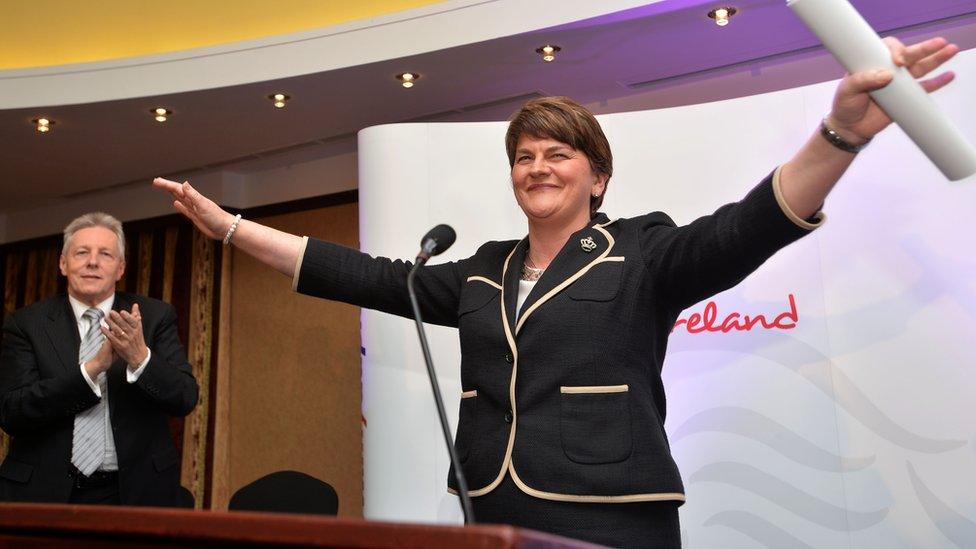
- Published10 January 2016
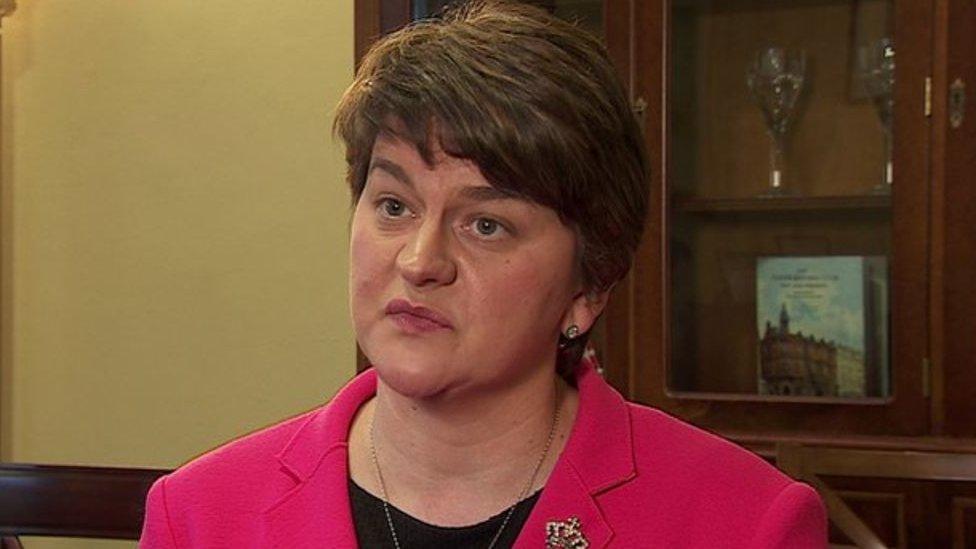
- Published18 December 2015
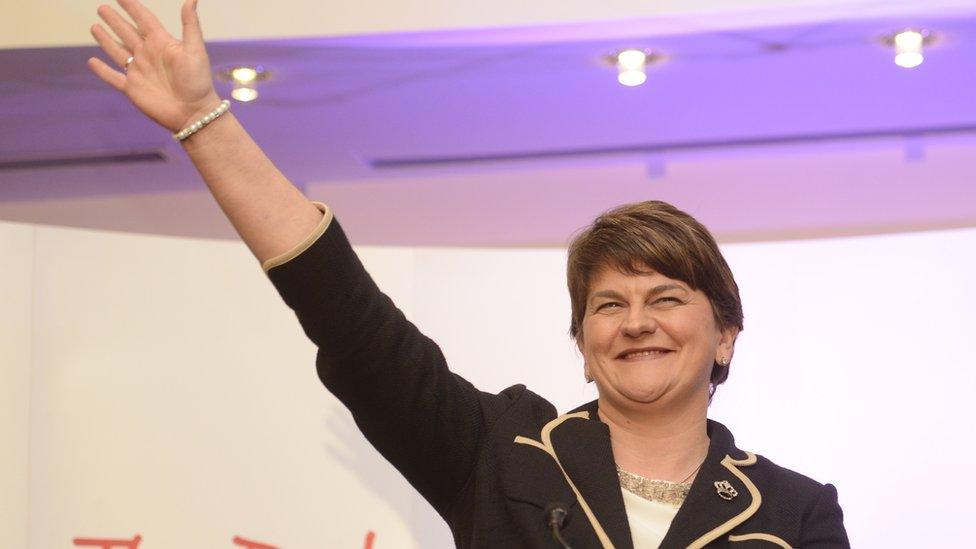
- Published17 December 2015
